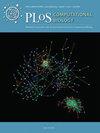Comparison and benchmark of deep learning methods for non-coding RNA classification
IF 3.8
2区 生物学
Q1 BIOCHEMICAL RESEARCH METHODS
引用次数: 0
Abstract
The involvement of non-coding RNAs in biological processes and diseases has made the exploration of their functions crucial. Most non-coding RNAs have yet to be studied, creating the need for methods that can rapidly classify large sets of non-coding RNAs into functional groups, or classes. In recent years, the success of deep learning in various domains led to its application to non-coding RNA classification. Multiple novel architectures have been developed, but these advancements are not covered by current literature reviews. We present an exhaustive comparison of the different methods proposed in the state-of-the-art and describe their associated datasets. Moreover, the literature lacks objective benchmarks. We perform experiments to fairly evaluate the performance of various tools for non-coding RNA classification on popular datasets. The robustness of methods to non-functional sequences and sequence boundary noise is explored. We also measure computation time and CO非编码 RNA 分类深度学习方法的比较与基准
非编码 RNA 在生物过程和疾病中的参与使得对其功能的探索变得至关重要。大多数非编码 RNA 尚待研究,因此需要能将大量非编码 RNA 快速分类为功能组或类别的方法。近年来,深度学习在各个领域取得的成功促使其应用于非编码 RNA 分类。目前已开发出多种新型架构,但现有文献综述并未涵盖这些进展。我们对最先进的不同方法进行了详尽的比较,并介绍了它们的相关数据集。此外,文献中缺乏客观的基准。我们进行了实验,以公平地评估各种工具在流行数据集上进行非编码 RNA 分类的性能。我们探讨了各种方法对非功能序列和序列边界噪声的鲁棒性。我们还测量了计算时间和二氧化碳排放量。根据这些结果,我们评估了不同架构选择的相关性,并为未来的方法提供了建议。
本文章由计算机程序翻译,如有差异,请以英文原文为准。
求助全文
约1分钟内获得全文
求助全文
来源期刊

PLoS Computational Biology
BIOCHEMICAL RESEARCH METHODS-MATHEMATICAL & COMPUTATIONAL BIOLOGY
CiteScore
7.10
自引率
4.70%
发文量
820
审稿时长
2.5 months
期刊介绍:
PLOS Computational Biology features works of exceptional significance that further our understanding of living systems at all scales—from molecules and cells, to patient populations and ecosystems—through the application of computational methods. Readers include life and computational scientists, who can take the important findings presented here to the next level of discovery.
Research articles must be declared as belonging to a relevant section. More information about the sections can be found in the submission guidelines.
Research articles should model aspects of biological systems, demonstrate both methodological and scientific novelty, and provide profound new biological insights.
Generally, reliability and significance of biological discovery through computation should be validated and enriched by experimental studies. Inclusion of experimental validation is not required for publication, but should be referenced where possible. Inclusion of experimental validation of a modest biological discovery through computation does not render a manuscript suitable for PLOS Computational Biology.
Research articles specifically designated as Methods papers should describe outstanding methods of exceptional importance that have been shown, or have the promise to provide new biological insights. The method must already be widely adopted, or have the promise of wide adoption by a broad community of users. Enhancements to existing published methods will only be considered if those enhancements bring exceptional new capabilities.
 求助内容:
求助内容: 应助结果提醒方式:
应助结果提醒方式:


